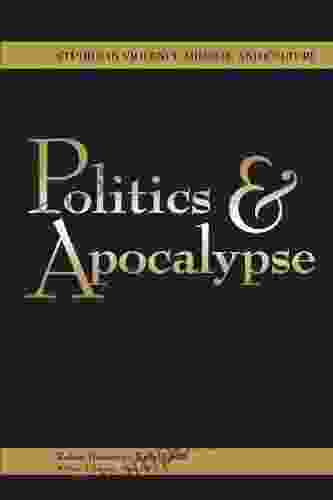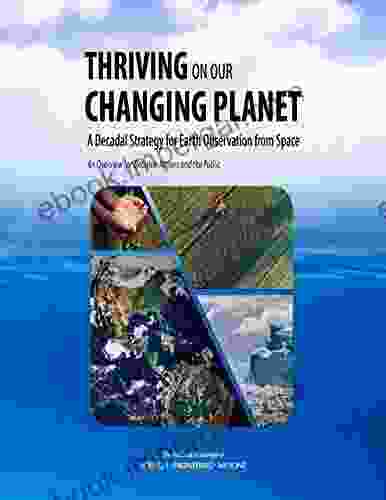Politics and Apocalypse: Studies in Violence Mimesis Culture

The intersection of politics and apocalypse has long fascinated scholars and laypeople alike. From ancient prophecies to contemporary doomsday scenarios, the apocalyptic imagination has exerted a profound influence on our understanding of the world around us.
4.8 out of 5
| Language | : | English |
| File size | : | 1016 KB |
| Text-to-Speech | : | Enabled |
| Screen Reader | : | Supported |
| Enhanced typesetting | : | Enabled |
| Word Wise | : | Enabled |
| Print length | : | 274 pages |
Violence is an intrinsic aspect of this apocalyptic imagination. In fact, violence often serves as the catalyst for societal upheaval and the ensuing apocalypse. But what is the nature of this violence? How does it operate within the political sphere? And what are its implications for our cultural consciousness?
This book seeks to answer these questions by exploring the mimetic nature of violence. Mimesis, or imitation, is a fundamental human behavior that plays a key role in shaping our understanding of the world and our place within it.
When it comes to violence, mimesis can lead to a dangerous cycle of escalation and retribution. This cycle is often fueled by fear, hatred, and a desire for revenge. As we witness violence, we are more likely to imitate it, thus perpetuating the cycle.
The Mimetic Culture of Violence
The mimetic nature of violence has created a culture of violence that permeates our society. This culture is evident in the way we talk about violence, the way we portray it in media, and the way we respond to it in our daily lives.
For example, our language is often filled with violent imagery. We talk about "crushing" our enemies, "blowing things up," and "taking down" our opponents. This language reinforces the idea that violence is an acceptable and even desirable way to resolve conflict.
The media also plays a significant role in shaping our culture of violence. Violent images are omnipresent in movies, television shows, and video games. These images desensitize us to violence and make it seem like a normal part of life.
Our response to violence in our daily lives also contributes to the culture of violence. When we witness violence, we often feel powerless and afraid. This fear can lead us to respond with violence ourselves, thus perpetuating the cycle.
The Political Implications of Violence
The mimetic culture of violence has a profound impact on the political sphere. Violence can be used as a tool to gain power, control, and suppress dissent. It can also be used to create fear and division, and to justify war and other forms of aggression.
For example, throughout history, authoritarian regimes have used violence to suppress dissent and maintain their grip on power. In recent years, we have seen how violence has been used to justify wars in the Middle East and elsewhere.
The political implications of violence are vast and complex. However, one thing is clear: violence is a dangerous and destructive force that must be addressed at its root.
Breaking the Cycle of Violence
If we are to break the cycle of violence, we must first understand the mimetic nature of violence. We must recognize that violence is not inevitable, but rather a learned behavior. Once we understand this, we can begin to take steps to change our behavior and create a more peaceful world.
There are many things we can do to break the cycle of violence. We can start by changing the way we talk about violence. We can avoid using violent language and imagery, and instead focus on peaceful and nonviolent solutions to conflict.
We can also change the way we portray violence in media. We can choose to watch movies and television shows that promote peace and nonviolence, and avoid those that glorify violence. We can also support media outlets that provide accurate and balanced coverage of violence.
Finally, we can change the way we respond to violence in our daily lives. When we witness violence, we can choose to respond with compassion and understanding, rather than with fear and hatred. We can also work to resolve conflicts peacefully, without resorting to violence.
Breaking the cycle of violence is a difficult but necessary task. By understanding the mimetic nature of violence, we can begin to take steps to change our behavior and create a more peaceful world.
This book is a valuable resource for anyone who is interested in understanding the relationship between politics and apocalypse, and the role of violence in our cultural consciousness. It is a must-read for scholars, policymakers, and anyone who wants to create a more just and peaceful world.
4.8 out of 5
| Language | : | English |
| File size | : | 1016 KB |
| Text-to-Speech | : | Enabled |
| Screen Reader | : | Supported |
| Enhanced typesetting | : | Enabled |
| Word Wise | : | Enabled |
| Print length | : | 274 pages |
Do you want to contribute by writing guest posts on this blog?
Please contact us and send us a resume of previous articles that you have written.
 Book
Book Novel
Novel Page
Page Chapter
Chapter Text
Text Story
Story Genre
Genre Reader
Reader Library
Library Paperback
Paperback E-book
E-book Magazine
Magazine Newspaper
Newspaper Paragraph
Paragraph Sentence
Sentence Bookmark
Bookmark Shelf
Shelf Glossary
Glossary Bibliography
Bibliography Foreword
Foreword Preface
Preface Synopsis
Synopsis Annotation
Annotation Footnote
Footnote Manuscript
Manuscript Scroll
Scroll Codex
Codex Tome
Tome Bestseller
Bestseller Classics
Classics Library card
Library card Narrative
Narrative Biography
Biography Autobiography
Autobiography Memoir
Memoir Reference
Reference Encyclopedia
Encyclopedia Ken Beck
Ken Beck Kerry Layne
Kerry Layne Kent Annan
Kent Annan Kimberly Mays
Kimberly Mays Kenn Kaufman
Kenn Kaufman Kevin Jones
Kevin Jones Kevin C Gardner
Kevin C Gardner Kerry Pierce
Kerry Pierce Khalid Raza
Khalid Raza Kenneth A Johnson
Kenneth A Johnson Kevin Quinn
Kevin Quinn Kim Henderson
Kim Henderson Kevin J Todeschi
Kevin J Todeschi Kent Wang
Kent Wang Ken Parsons
Ken Parsons Kia Hamadani
Kia Hamadani Kenny Rogers
Kenny Rogers Kim Collins
Kim Collins Ken Duncan
Ken Duncan Kim Brackett
Kim Brackett
Light bulbAdvertise smarter! Our strategic ad space ensures maximum exposure. Reserve your spot today!

 Vincent Mitchell10 Steps To Protect Your Family Business From Intrusion Cancel Culture And
Vincent Mitchell10 Steps To Protect Your Family Business From Intrusion Cancel Culture And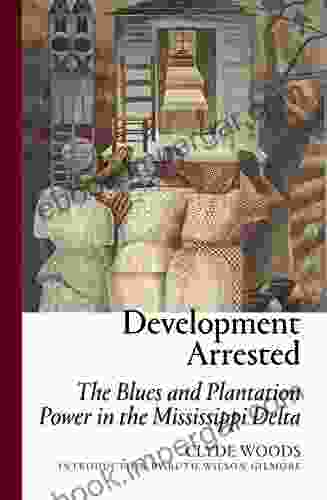
 F. Scott FitzgeraldUnveiling the Profound Legacy: The Blues and Plantation Power in the...
F. Scott FitzgeraldUnveiling the Profound Legacy: The Blues and Plantation Power in the... Oscar BellFollow ·9.4k
Oscar BellFollow ·9.4k Banana YoshimotoFollow ·10.6k
Banana YoshimotoFollow ·10.6k Darren BlairFollow ·16.6k
Darren BlairFollow ·16.6k Michael SimmonsFollow ·18k
Michael SimmonsFollow ·18k Nathan ReedFollow ·18.5k
Nathan ReedFollow ·18.5k Ian McEwanFollow ·8.7k
Ian McEwanFollow ·8.7k Neil ParkerFollow ·12.9k
Neil ParkerFollow ·12.9k James JoyceFollow ·19.3k
James JoyceFollow ·19.3k

 Chadwick Powell
Chadwick PowellDiscover the Secrets of Optimal Health with "The Healthy...
Preface: Embark on a Transformative...
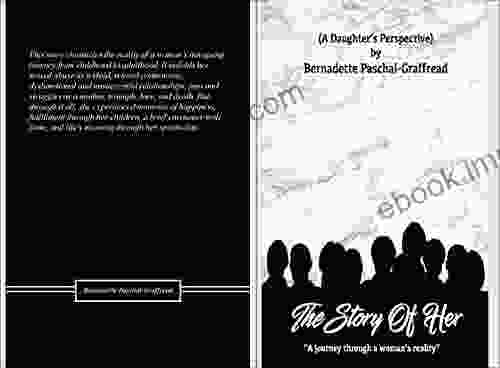
 Andres Carter
Andres CarterUnveiling the Profound Journey of Womanhood: A Daughter's...
In the tapestry of...
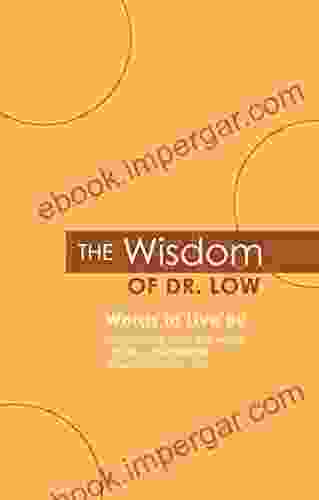
 Travis Foster
Travis FosterWords to Live By: The Essential Guide to Finding...
Words have the power to shape our...
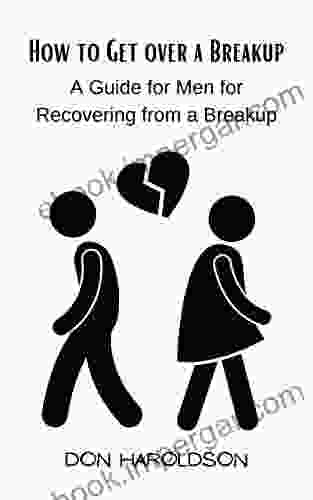
 Chinua Achebe
Chinua AchebeThe Ultimate Guide for Men to Recover from a Breakup
: Breakups are never...

 Spencer Powell
Spencer PowellNew Mindset, New Results: The Proven Path to Unleashing...
About the Book ...
4.8 out of 5
| Language | : | English |
| File size | : | 1016 KB |
| Text-to-Speech | : | Enabled |
| Screen Reader | : | Supported |
| Enhanced typesetting | : | Enabled |
| Word Wise | : | Enabled |
| Print length | : | 274 pages |


